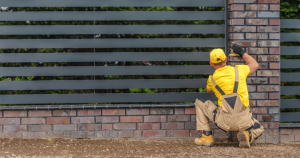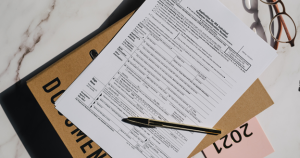What You Should Know: Can Defense Lawyers Lie in Court?
Curious about legal ethics and can defense lawyers lie in court? Here’s what really happens behind the scenes of criminal defense.
Can defense lawyers lie in court?
It’s a question people ask quietly, but think loudly, especially if they’re watching a high-stakes trial or facing charges themselves.
The idea of a lawyer bending the truth to win a case is something that fuels legal dramas, sparks ethical debates, and honestly, leaves a lot of folks confused about what lawyers can and can’t do inside a courtroom.
Let’s be clear: No, defense lawyers cannot legally lie in court.
They can fight hard.
They can challenge the prosecution’s evidence.
They can poke holes in stories.
But when it comes to outright lying? That crosses a legal and ethical line that can end careers and even lead to criminal charges.
This article breaks down exactly what defense attorneys are allowed to do in court, where the ethical lines are drawn, and how they defend clients without crossing into deception.
If you’re facing charges or just want to understand the role of a criminal defense lawyer, this is your guide.
What the Law Says – Lying Is Not an Option

Let’s start with the facts. Two sets of rules bind defense lawyers:
- The law – They must follow legal procedures and cannot obstruct justice.
- The professional code of conduct – Lawyers are licensed by state bar associations and held to ethical standards.
If a lawyer knowingly lies in court, say, presents fake evidence or makes false claims, they risk:
- Being disbarred (losing their license)
- Facing criminal charges (like obstruction or perjury)
- Ruining their career and reputation
So no, defense lawyers can’t legally lie even if it would help their client.
But what counts as lying? Here’s what crosses the line:
- Faking or fabricating evidence
- Coaching a witness to lie
- Letting a client lie on the stand without correction
- Misleading the court with false facts
Defense lawyers have to walk a tightrope.
They must defend their client fiercely—but they can’t mislead the judge or jury in the process.
And that’s what makes trial work so complex.
A good defense lawyer doesn’t need to lie. They know how to use facts, the burden of proof, and strategic questioning to their advantage without breaking the rules.
The Real Job of a Criminal Defense Lawyer
Defense lawyers aren’t in court to tell the jury their client is innocent.
Their job is to ensure the prosecution proves guilt beyond a reasonable doubt. That’s it.
Here’s what a good defense attorney does:
- Reviews all evidence and looks for legal issues or inconsistencies
- Files motions to suppress illegally obtained evidence
- Cross-examines witnesses to expose contradictions.
- Points out gaps in the prosecution’s case
- Protects the constitutional rights of their client
In other words, they hold the prosecution accountable.
That doesn’t mean lying. It means building a solid defense based on real facts and smart strategy.
Even if a client is guilty, the lawyer’s role is to get the best possible outcome.
That could mean:
- Getting charges reduced
- Negotiating a plea deal
- Arguing for a lighter sentence
Lying isn’t just unnecessary; it’s dangerous.
The experienced team at Best and Brock understands this balancing act better than most. As trusted Chattanooga Criminal Defense Lawyers, they focus on ethical, strategic defenses that get results without crossing any lines.

What If My Lawyer Knows I’m Guilty?
This is where things get tricky, and where the misunderstanding about “lying” often comes in.
Say you tell your defense lawyer you committed the crime.
Now what?
They still defend you. That’s their job.
But here’s what changes:
- They can’t let you testify falsely.
If you plan to lie on the stand, your lawyer is required to stop you, or even withdraw from the case.
- They can’t argue that someone else did it if they know that’s not true.
- They can still challenge the prosecution’s case. If there’s a lack of hard evidence, the lawyer can argue that the state hasn’t met its burden of proof.
This isn’t about protecting criminals, it’s about protecting the legal system.
The U.S. justice system is built on the principle that everyone is innocent until proven guilty.
A good defense lawyer knows how to work within those boundaries. They don’t need lies, they need strategy, preparation, and deep knowledge of the law.
Common Myths About Defense Lawyers Lying (300 words)
Let’s bust a few myths that fuel the confusion.
Myth 1: “All defense lawyers care about is winning.”
Fact: Good lawyers care about justice, fairness, and due process.
They’re not trying to game the system, they’re trying to make sure the system doesn’t trample someone’s rights.
Myth 2: “They’ll say anything to get their client off.”
Fact: Defense lawyers are bound by strict ethical rules. Lying in court isn’t just risky—it’s illegal.
Myth 3: “If a lawyer defends someone guilty, they must be dishonest.”
Fact: Defense attorneys often don’t know if a client is guilty. Even if they suspect it, the law still gives everyone the right to a defense.
Myth 4: “Defense lawyers manipulate juries with lies.”
Fact: Jurors make decisions based on the evidence. Defense lawyers use cross-examination and argument to show weaknesses—not to invent stories.
Defense lawyers are not villains. They’re gatekeepers. They make sure the rules are followed, the evidence is valid, and the punishment fits the crime.
When Lines Get Blurry – Gray Areas in the Courtroom
Not all courtroom moves are black and white.
Sometimes, what seems like “lying” is actually:
- Strategic use of loopholes or gray areas in the law
- Omitting facts that don’t need to be shared
- Pushing weak points in the prosecution’s case
This is where experience matters.
A rookie might cross the line. A seasoned lawyer? They know how far they can go without risking the case—or their license.
Again, firms like Best and Brock are trusted because they know that line and how to work within it.
Why Hiring the Right Lawyer Matters
When you’re facing criminal charges, it’s not the time for guesswork or cutting corners. You want someone who knows how to build a strong defense and who you can trust.
Here’s why experience matters:
- They’ve seen how judges think and rule.
- They know how far the prosecution might push.
- They can spot weak evidence fast—and know how to respond.
You also want a lawyer who:
- Respects the law and the courtroom
- Keeps you informed without sugarcoating the truth
- Has a record of successful cases and satisfied clients

Conclusion
So, can defense lawyers lie in court?
No.
They can fight hard.
They can raise reasonable doubt.
They can challenge bad evidence.
But they cannot lie, and the good ones don’t need to.
A defense attorney’s job is to protect your rights, keep the system honest, and ensure you get a fair shot.
When done right, that doesn’t require deception. It requires preparation, experience, and legal strategy.













